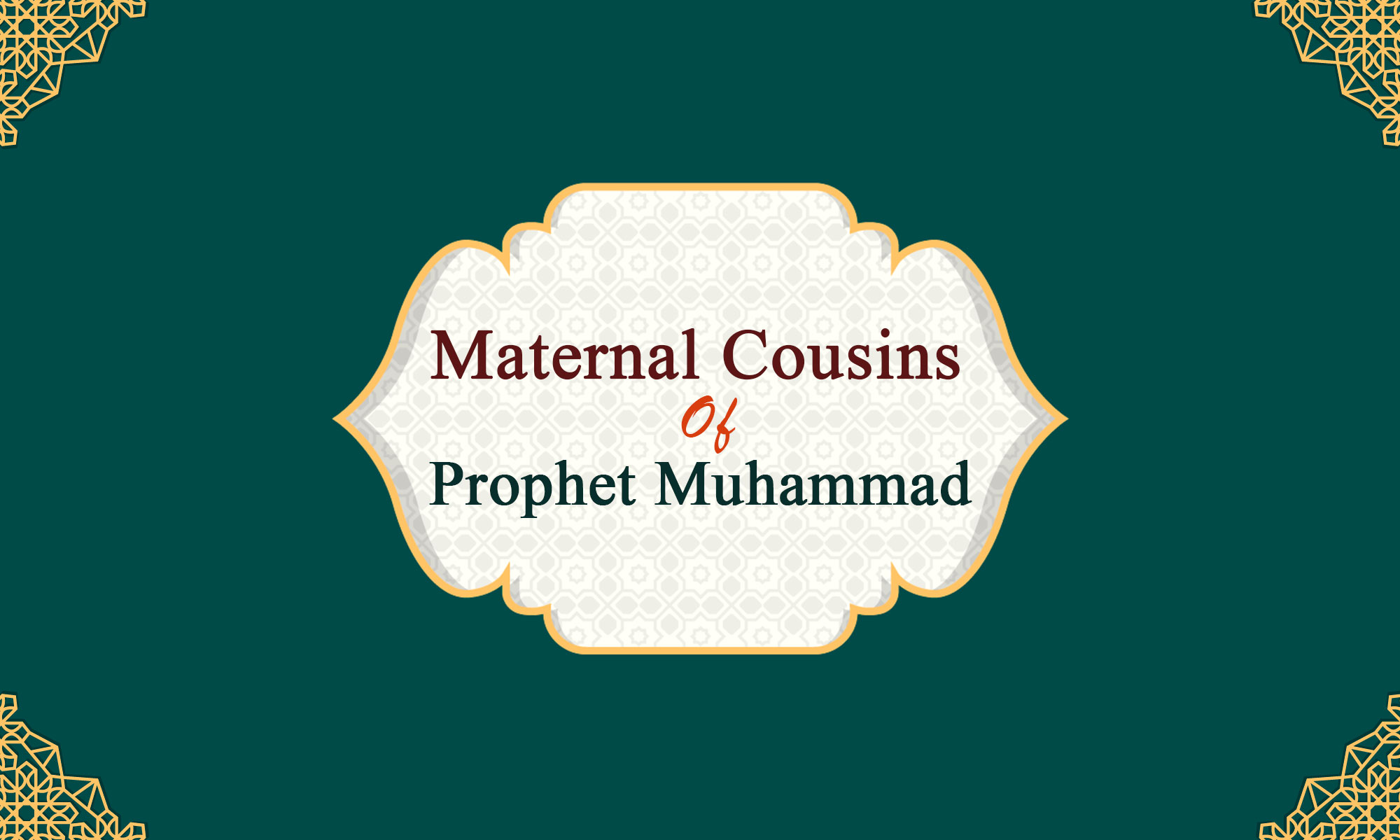Names of Maternal Cousins of Prophet Muhammad

Scholars of Islamic history and prophetic biography (Seerah) have shown great care in documenting details about the family of the Prophet Muhammad (peace be upon him). While extensive information is available regarding his immediate family, certain details about his extended maternal relatives remain less well-known.
Among these are the children of the Prophet’s maternal uncles and aunts, related through his mother, Aminah bint Wahb. This article aims to explore available historical accounts of these relatives, clarify how the Arabic language categorizes maternal relations, and briefly reflect upon the scholarly perspective regarding engaging with such historical details.
Maternal Cousins of Prophet Muhammad (Through his Mother, Aminah)
According to historical sources and biographies, not much detailed information has been provided about the children of the maternal uncles and aunts of Prophet Muhammad (peace be upon him) the siblings of his mother, Aminah bint Wahb except for a few specific individuals:
1. Abd Yaghuth ibn Wahb
He was explicitly mentioned by Ibn Hibban in his book "As-Seerah An-Nabawiyyah wa Akhbar al-Khulafa" (1/44) as a maternal uncle of Prophet Muhammad.
2. Al-Furai'ah bint Wahb Al-Zuhriyyah
She is recorded by Ibn Hibban in his book "Al-Thiqat" (3/337) as a maternal aunt of the Prophet Muhammad.
3. Al-Aswad ibn Abd Yaghuth
He is identified as the direct son of Abd Yaghuth, the Prophet’s maternal uncle.
Aside from these documented relatives, others were termed "maternal uncles" (akhwal) due to their general maternal relationship through Aminah bint Wahb. The Arabs commonly applied the term khal (maternal uncle) broadly, referring to anyone connected through the mother's lineage. This linguistic custom explains why the Prophet Muhammad referred to Sa'd ibn Abi Waqqas as his maternal uncle, as Sa'd was a cousin of the Prophet Muhammad's mother.
Qur'anic Reference
The Quran also references these maternal relationships explicitly in Surah Al-Ahzab (verse 50):
"O Prophet, We have made lawful to you your wives to whom you have given their dowries, those whom your right hand possesses from what Allah has granted you, and the daughters of your paternal uncles, and the daughters of your paternal aunts, and the daughters of your maternal uncles and the daughters of your maternal aunts who emigrated with you..." (Al-Ahzab: 50).
Imam Al-Alusi, in his commentary, clarified this verse by stating:
"The meaning of 'daughters of your maternal uncles and maternal aunts' refers specifically to the daughters of Banu Zuhrah—both males and females. This viewpoint was also adopted by At-Tabarsi in 'Majma' al-Bayan,' who did not mention an alternative opinion. The Arabs commonly use the terms 'uncles and aunts' broadly, applying 'maternal uncles and aunts' to all maternal relatives, near or distant." (Tafsir al-Alusi, 11/232)
Scholarly Reflections
Finally, scholars advise that while exploring such historical details can be interesting, it should not become one's primary focus unless one specializes in historical studies. Muslims are encouraged instead to concentrate on matters of greater importance, such as understanding their faith, comprehending essential religious duties, and reflecting deeply upon the Quran and the teachings of the Prophet Muhammad (peace be upon him).